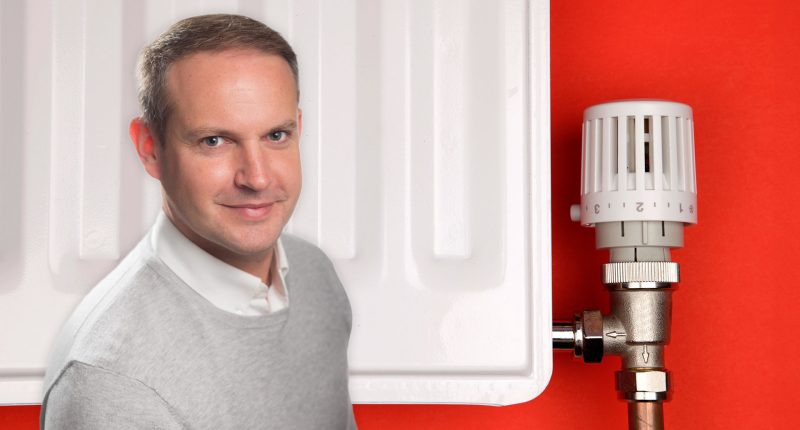AS overnight temperatures plummet, many households will be worried about heating costs this winter.
You may well be feeling the chill, but if you keep your central heating on all night for eight hours, you could end up forking out a hefty £100 a week on this alone.
This is based on recent figures from CheckaTrade which show the average cost of running your heating is 7p per kilowatt-hour.
For those with a 24kW boiler, this could mean a cost of £1.68 – mounting up to £13.44 for eight hours.
Do this seven nights a week, and the total spend is not far off £100.
Helpfully, a heating whizz has revealed how to make the most out of your radiators to ensure you can keep your home toasty, without making too big a dent in your wallet.
Read more on energy bills
Andy Kerr, founder of boiler installation company BOXT, told The Sun: “One interior design decision that some people make is having wooden radiator covers.
“But while these are popular, due to their appearance, wood is an effective insulator – meaning these covers do not transmit heat particularly well.”
This, he warns, can result in you wasting both energy and money.
“A more energy-efficient alternative is to opt for covers made from metal,” he said.
Most read in Money
“Metal absorbs less heat than wood, conducting the heat more efficiently – and therefore enabling heat to flow around the room more easily.”
Another thing you might not realise is that the style of the radiator cover can also impact its effectiveness.
Andy said: “If there are more gaps and holes in it, then more heat can escape.
“By contrast, if the cover is completely solid, it will be much harder for the heat generated by the radiator to transmit into the room.”
This means it will take longer, use more energy, and be more expensive to warm the room.
Andy added: “It’s also essential there is ample space between the radiator and the cover – and that the two are never touching.
“This is important to allow the heat emitted from the radiator to be evenly distributed around the room.”
Other radiator mistakes to avoid
Adding covers which are the wrong material or style are not the only mistakes people make when it comes to their radiators, according to the heating supremo.
“Another common error is radiators being blocked,” said Andy.
“These units transfer heat by convecting it or by dispersing it into the surrounding space, meaning they are more efficient when unobstructed.
“If, say, you place a sofa up against a radiator, this will block the heat from effectively rising into the room.”
This will result in longer heating times.
Andy added: “This, in turn, will increase your household’s energy consumption and bills.”
The same is true if you place damp clothes on a radiator.
“These will act as a barrier to the heat spreading to the rest of the room,” said the boiler guru.
“With the clothes trapping the warm air, the system needs to work harder to heat the room to its ideal temperature.”
Another costly mistake, according to Andy, is keeping all the radiators in your home at the same heat.
“If there are rooms you’re not using much, radiators should not be kept at the same temperature throughout,” he said.
“One of the most effective ways to reduce energy usage and save money is by using ‘thermostatic radiator valves’ (TRVs) to adjust the temperature of your units.”
TRVs automatically bring down the flow of hot water to the radiator when the room is at its ideal temperature.
Andy said: “This allows for more control over your energy consumption – and prevents overheating.”
By setting up and using your radiators efficiently you shouldn’t need to keep them on all night – potentially saving yourself a neat £100 a week.
While you’re busy thinking about your radiators, don’t forget to check if they need bleeding.
“Forgetting to do this simple task could cost you money, as it means they won’t be working as well as they could be,” said Andy.
“Bleeding them regularly is an effective and easy way to maximise their efficiency.”
If air is trapped in your heating system, it prevents hot water from circulating properly.
“This means they can’t heat up fully,” he said.
“Regularly bleeding radiators ensures this water moves more freely, allowing for more efficient heat distribution.”
The key indicators your radiators need bleeding:
Read more on The Sun
- The unit is cold at the top
- It makes funny noises when heating up. For example, excessive ‘knocking’ noises can mean there is air trapped in the system
- There are damp patches or condensation surrounding it or above it
To find out more about how to bleed a radiator, head over to our guide.










